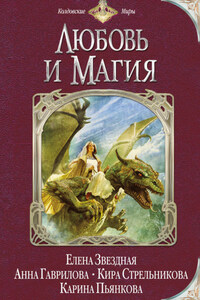ACCORDING to Old Chester, to be romantic was just one shade less reprehensible than to put on airs. Captain Alfred Price, in all his seventy years, had never been guilty of putting on airs, but certainly he had something to answer for in the way of romance.
However, in the days when we children used to see him pounding up the street from the post-office, reading, as he walked, a newspaper held at arm’s-length in front of him, he was far enough from romance. He was seventy years old, he weighed over two hundred pounds, his big head was covered with a shock of grizzled red hair; his pleasures consisted in polishing his old sextant and playing on a small mouth-harmonicon. As to his vices, it was no secret that he kept a fat black bottle in the chimney-closet in his own room, and occasionally he swore strange oaths about his grandmother’s nightcap. “He used to blaspheme,” his daughter-in-law said; “but I said, ‘Not in my presence, if you please!’ So now he just says this foolish thing about a nightcap.” Mrs. Drayton said that this reform would be one of the jewels in Mrs. Cyrus Price’s crown; and added that she prayed that some day the Captain would give up tobacco and rum. “I am a poor, feeble creature,” said Mrs. Drayton; “I cannot do much for my fellow-men in active mission-work, – but I give my prayers.” However, neither Mrs. Drayton’s prayers nor Mrs. Cyrus’s active mission-work had done more than mitigate the blasphemy; the “rum” (which was good Monongahela whiskey) was still on hand; and as for tobacco, except when sleeping, eating, playing on his harmonicon, or dozing through one of Dr. Lavendar’s sermons, the Captain smoked every moment, the ashes of his pipe or cigar falling unheeded on a vast and wrinkled expanse of waistcoat.
No; he was not a romantic object. But we girls, watching him stump past the school-room window to the post-office, used to whisper to one another, “Just think! he eloped.”
There was romance for you!
To be sure, the elopement had not quite come off, but except for the very end, it was all as perfect as a story. Indeed, the failure at the end made it all the better: angry parents, broken hearts – only, the worst of it was, the hearts did not stay broken! He went and married somebody else; and so did she. You would have supposed she would have died. I am sure, in her place, any one of us would have died. And yet, as Lydia Wright said, “How could a young lady die for a young gentleman with ashes all over his waistcoat?”
But when Alfred Price fell in love with Miss Letty Morris, he was not indifferent to his waistcoat, nor did he weigh two hundred pounds. He was slender and ruddy-cheeked, with tossing red-brown curls. If he swore, it was not by his grandmother nor her nightcap; if he drank, it was hard cider (which can often accomplish as much as “rum”); if he smoked it was in secret, behind the stable. He wore a stock, and (on Sunday) a ruffled shirt; a high-waisted coat with two brass buttons behind, and very tight pantaloons. At that time he attended the Seminary for Youths in Upper Chester. Upper Chester was then, as in our time, the seat of learning in the township, the Female Academy being there, too. Both were boarding-schools, but the young people came home to spend Sunday; and their weekly returns, all together in the stage, were responsible for more than one Old Chester match…
“The air,” says Miss, sniffing genteelly as the coach jolts past the blossoming May orchards, “is most agreeably perfumed. And how fair is the prospect from this hill-top!”
“Fair indeed!” responds her companion, staring boldly.
Miss bridles and bites her lip.
“I was not observing the landscape,” the young gentleman hastens to explain.
In those days (Miss Letty was born in 1804, and was eighteen when she and the ruddy Alfred sat on the back seat of the coach) – in those days the conversation of Old Chester youth was more elegant than in our time. We, who went to Miss Bailey’s school, were sad degenerates in the way of manners and language; at least so our elders told us. When Lydia Wright said, “Oh my, what an awful snow-storm!” dear Miss Ellen was displeased. “Lydia,” said she, “is there anything ‘awe’-inspiring in this display of the elements?”
“No, ’m,” faltered poor Lydia.
“Then,” said Miss Bailey, gravely, “your statement that the storm is ‘awful’ is a falsehood. I do not suppose, my dear, that you intentionally told an untruth; it was an exaggeration. But an exaggeration, though not perhaps a falsehood, is unladylike, and should be avoided by persons of refinement.” Just here the question arises: what would Miss Ellen (now in heaven) say if she could hear Lydia’s Lydia, just home from college, remark – But no: Miss Ellen’s precepts shall protect these pages.
But in the days when Letty Morris looked out of the coach window, and young Alfred murmured that the prospect was fair indeed, conversation was perfectly correct. And it was still decorous even when it got beyond the coach period and reached a point where Old Chester began to take notice. At first it was young Old Chester which giggled. Later old Old Chester made some comments; it was then that Alfred’s mother mentioned the matter to Alfred’s father. “He is young, and, of course, foolish,” Mrs. Price explained. And Mr. Price said that though folly was incidental to Alfred’s years, it must be checked.









